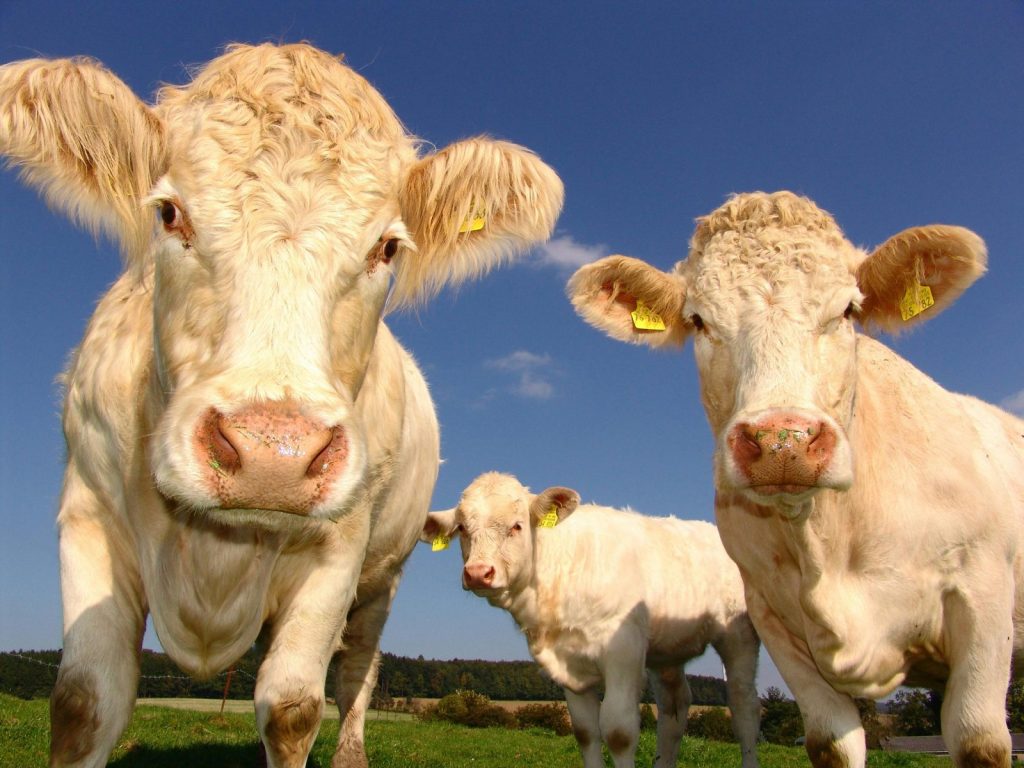
What is sustainable living? How Your Choices Shape a Sustainable Present and Future
By embracing sustainable living, we adopt practices that contribute to the well-being of the environment, society, and economy.

Are you looking for ways to enjoy your summer meals while staying healthy and supporting the environment?
Do you want to make the most of the season’s freshest produce and minimize your carbon footprint?
Join us and dive into healthy, sustainable summer eating!
Summer is the perfect time to embrace vibrant, fresh, nutritious foods that nourish our bodies and promote sustainability. With plenty of seasonal produce and longer days perfect for outdoor meals, it's easier than ever to make choices that benefit our health and the planet. This summer, let's shift towards eating habits that are delicious, wholesome, and environmentally friendly.
Picture this: juicy, sun-ripened tomatoes, crisp cucumbers, and plenty of colorful berries, all freshly picked and bursting with flavor. These seasonal delights taste great and offer health benefits, from boosting your immune system to providing essential vitamins and antioxidants. Moreover, choosing locally sourced and organic produce supports sustainable farming practices, reduces your carbon footprint, and fosters a stronger connection with your community.

Photo by Adrienn: https://www.pexels.com/photo/woman-eating-bruschetta-1537635/
Grilling is synonymous with summer, and you can make your BBQs greener and healthier by choosing plant-based options, responsibly sourced meats, and eco-friendly grilling techniques. Imagine savoring a perfectly grilled portobello mushroom burger or skewers loaded with vegetables, all prepared in a way that minimizes waste and conserves energy.
Hydration is crucial during the hot summer months, and there is no better way to stay refreshed than with homemade, zero-waste beverages. Think of herbal iced teas, fruit-infused water, and smoothies made from leftover greens and fruits that might otherwise go to waste.
Sustainable summer eating also means being mindful of food waste. Creative meal planning, proper food storage, and composting can significantly reduce the amount of food in the trash.

Photo by Maarten van den Heuvel: https://www.pexels.com/photo/person-holding-sliced-vegetable-2284166/
A plant-based diet offers numerous benefits beyond personal health by significantly impacting the environment.
Plant-based diets are rich in vitamins, minerals, antioxidants, and fiber. Foods like fruits, vegetables, legumes, nuts, and seeds help reduce the risk of developing chronic diseases such as heart disease, diabetes, and cancer and promote a healthy weight (1, 2, 3, 4, 5). These foods are low in saturated fat and high in essential nutrients that support metabolism and cellular repair. Moreover, the variety offered by plant-based ingredients encourages a broader intake of beneficial compounds.
Also, did you know that vegetables, fruits, and other plant-based foods contain antioxidants? These antioxidants help reduce oxidative stress, keeping your body in top shape. Plus, diets rich in plant foods can lower inflammation markers (6). For endurance athletes, these benefits can translate into safer and better performance. So, loading up on plant-based goodies might give you that extra edge!
THE CARBON HOOFPRINT
Food production has a big impact on the environment. That is mainly due to greenhouse gas emissions (7, 8, 9, 10). The total amount of these gases from an activity is called its carbon footprint. By comparing carbon footprints, we can see how sustainable different foods are. For example, red meat and dairy have the highest carbon footprints among all meats, making them the least sustainable options (11).

Photo by Pixabay: https://www.pexels.com/photo/3-cows-in-field-under-clear-blue-sky-33550/
On the other hand, plant-based foods need less water and land and produce fewer greenhouse gases than animal-based foods. Adding more vegetarian or vegan meals to your diet, you're helping to reduce environmental stress, support biodiversity, and conserve water. Plus, relying less on animal farming reduces methane emissions, a potent greenhouse gas that contributes to climate change. So, eating more plant-based foods is a win for both you and the planet!
Using seasonal ingredients is a cornerstone of sustainable eating and enriches your diet with the freshest and tastiest produce. Summer provides an exceptional variety of fruits and vegetables at their nutritional peak and the best flavors.
Choosing seasonal produce promotes local farming and reduces the environmental impact of long-distance food transportation and storage. Seasonal fruits and vegetables also tend to be more affordable when they are abundant. Health-wise, consuming produce in season ensures foods that have not lost their nutritional value through extensive transit and storage. This practice supports a more eco-friendly diet while encouraging local economic growth by supporting local producers.
Summer bursts with fruits and vegetables that you can incorporate into your diet for health and environmental benefits:
Reducing food waste is a crucial part of sustainable eating. Start by planning your meals for the week and buying ONLY what you need, which minimizes the chances of spoilage. Use all parts of the vegetables where possible, like beet greens and carrot tops, for salads or smoothies. Practice proper storage techniques for fruits and vegetables to extend their freshness. Lastly, if you have leftovers, think of creative ways to reuse them in your meals.

Photo by Maarten van den Heuvel: https://www.pexels.com/photo/person-holding-sliced-vegetable-2284166/
Prefer organic and locally sourced ingredients. Organic farming practices reduce pollution and conserve water, making them better for the environment. Buying local not only supports local farmers and reduces the carbon footprint associated with transportation but also ensures that you’re eating seasonal foods at their peak flavor. Visit nearby farmers’ markets or consider joining a community-supported agriculture (CSA) program to get fresh, locally-grown produce regularly.
Investing in reusable and eco-friendly kitchenware plays an important role in sustainable eating. Swap disposable items like plastic wrap and aluminum foil for reusable beeswax wraps and silicone lids. Choose glass or stainless steel containers over plastic ones for storing leftovers. Utilize wooden cutting boards and cooking utensils instead of plastic variants. Making these switches reduces waste and decreases the demand for plastic products, contributing to a more sustainable environment.
Battling the summer heat means keeping hydration at the forefront of your diet. What better way to do this than with delicious and picturesque drinks that support your health and respect the environment? From watermelon mint coolers to cucumber-infused water, there are countless ways to savor local, seasonal ingredients in your beverages.
Hydration is crucial, especially during the hot months when your body loses water rapidly through sweat. Drinking sufficient fluids supports vital bodily functions, including regulating body temperature, keeping joints lubricated, and ensuring that your digestive system functions efficiently.
Inadequate hydration can lead to headaches, lethargy, and overall decreased physical performance. Thus, integrating hydrating foods like watermelon, cucumber, and strawberries into your diet significantly boosts your fluid intake.

Photo by Kaizen Nguyễn on Unsplash
Refreshing beverages, particularly those made with fruits high in water content, can thus be an enjoyable and effective way to meet your hydration needs. Moreover, choosing plant-based, locally sourced ingredients for your summer drinks can reduce your environmental footprint, aligning your hydration habits with sustainable eating principles.
As we wrap up our journey through sustainable summer eating, it’s clear that choosing plant-based recipes benefits our health and our planet. Ever wondered how your diet choices can make a real difference? Embracing a diet rich in fruits, vegetables, and whole grains can improve well-being and reduce environmental footprint.
Ready to transform your summer menu? By incorporating these delicious, eco-friendly foods, you're making a choice that celebrates personal health and ecological balance. Imagine savoring a juicy watermelon salad, a hearty quinoa bowl, or a refreshing berry smoothie, knowing each bite is a step towards a healthier you and a healthier planet.
Not only does a plant-based diet help reduce greenhouse gas emissions and conserve precious resources like water and land, but it also supports sustainable farming practices that promote biodiversity and soil health.
Feeling inspired yet? Think about the positive impact you can make with each meal you prepare.
So, dive into the vibrant world of plant-based cuisine and enjoy a season filled with freshness and flavor! Explore new recipes, visit your local farmers' market, and perhaps even start a small garden. Every small step counts in creating a sustainable future. Join the movement and make this summer your healthiest, most eco-friendly one yet!

By embracing sustainable living, we adopt practices that contribute to the well-being of the environment, society, and economy.

Sustainability goes beyond admiration; it is a commitment to maintaining the delicate balance between our species and the planet.

Dive into the world of traditional board games and discover their diverse health benefits. Explore expert insights on how these games contribute to well-being and mental acuity.

Natural deodorant is an effective and environmentally friendly product. It is a healthy option since traditional antiperspirants often contain chemicals.

Let’s discover the environmental impact of household waste, and hopefully, this will inspire us to create a new mindset.
Welcome to Sustainable Living by Science. With our scientific mindset, we are exploring how to nurture our well-being while caring for the environment. We are sharing the meaning of sustainability through evidence-based practices. Join us on this journey towards a greener, healthier future where science guides us to make the best choices for ourselves, the planet, and others.
All content is © 2024 by Sustainable Living by Science. All rights reserved.